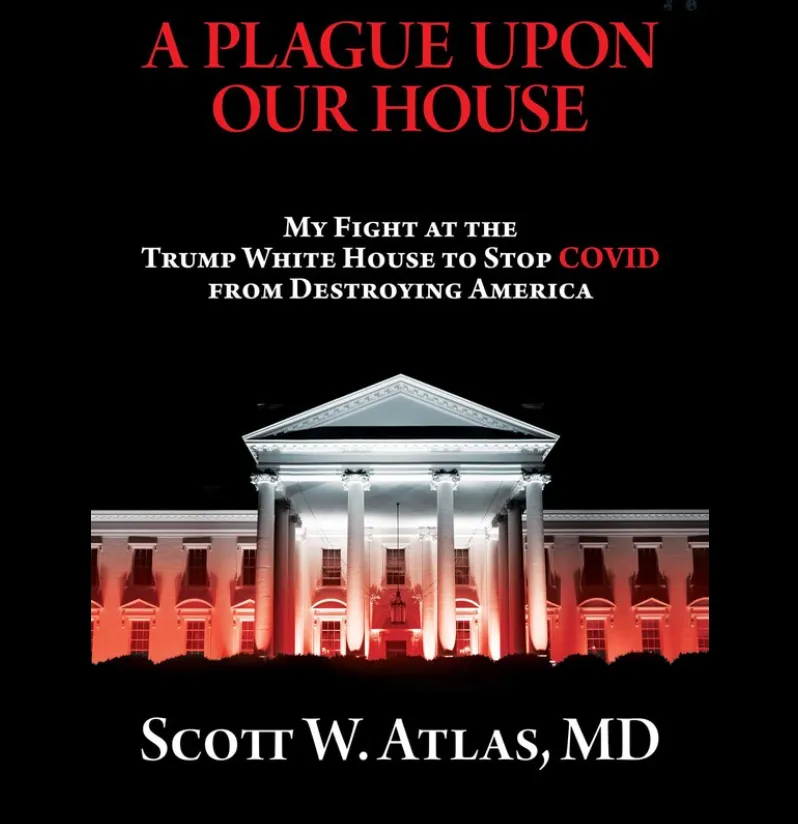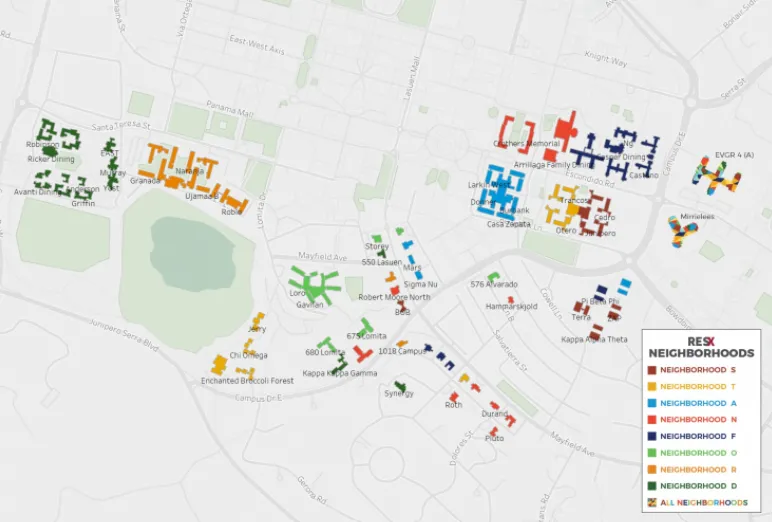Table of Contents
By now, two years into the COVID-19 pandemic, many Americans have realized that pandemic-era restrictions were ineffective and overly punitive. Scientific studies have found that lockdowns and mask mandates were drastically less effective at preventing COVID spread and deaths than public health officials claimed. A poll showed that only 44% of Americans trust what the Centers for Disease Control (CDC) says about COVID-19, a startling figure for an agency that is supposed to represent science. And even after most Americans have been vaccinated, government officials continue to advocate for pandemic restrictions that have no scientific justification.
Dr. Scott Atlas, a Senior Fellow at the Hoover Institution and a former advisor to the President and member of the White House Coronavirus Task Force, saw this coming.
Dr. Atlas’s new book, A Plague Upon Our House: My Fight at the Trump White House to Stop Covid from Destroying America, chronicles his time serving on the White House Coronavirus Task Force and is a must-read for anyone who wants to understand how unelected public health bureaucrats took control of the pandemic response and implemented irrational policies with disastrous consequences for the public. Dr. Atlas emerges from the book as one of the only voices of reason on the Coronavirus Task Force frequently warning others (to little reception) that overly restrictive pandemic restrictions would do more harm than good.
Much of the book takes aim at three bureaucrats in particular: Anthony Fauci, Deborah Birx (the former White House COVID task force coordinator), and Robert Redfield (the then Director of the CDC). Dr. Atlas refers to these three officials as the “troika,” and he highlights through a series of anecdotes how Fauci, Birx, and Redfield ignored science, engaged in fear-mongering, and enjoyed near-unlimited authority to set COVID-19 policy. The result? The needlessly restrictive federal health recommendations and policies that have lasted through today.
From Atlas’s experiences, it is clear that Fauci and Birx behaved as a dictatorial duo, silencing dissent from those who questioned their recommendations as they proposed an increasingly radical series of policies. As Atlas explains, the Task Force had three straightforward priorities at the outset of the pandemic: find a vaccine as quickly as possible, flatten the curve to prevent hospital overcrowding, and increase the supply of PPE. However, public health officials such as Fauci and Birx quickly moved towards a radical zero-COVID approach aimed at “eliminating positive tests in people with zero symptoms and very little risk of any serious illness.”
According to Atlas, “No matter what the President himself said, the Vice President and political team… feared Fauci and Birx, who held extremely high political approval. That was a de facto authorization, allowing them to formulate and then communicate what the public would hear as the administration’s policy recommendations.” This is a stunning revelation, and it is hard to imagine another point in American history when two unelected officials wielded this level of authority over administration policy.
Birx, especially, used this authority to devastating effect. One example: school reopenings. Prolonged school closures were one of the worst policy missteps of the entire pandemic. Data since the spring of 2020 showed that the COVID risk to healthy children was extremely low; additionally, at that time and subsequently, dozens of studies conducted around the world everywhere from Japan to Sweden, showed that children are extremely unlikely to transmit the virus. Yet schools around the United States remained closed, leading to unfathomable learning loss and worsening mental health for millions of children. Dr. Atlas had access to these studies and presented them to the Task Force. But when he did, Birx responded by saying “There is a bell curve of epidemiologists, and you [Dr. Atlas] are at the fringe.” She then demanded that the rest of the task force agree with her assessment that school closures were necessary. Birx’s blatant disregard for objective scientific evidence is shocking and highlights how the stubbornness of a small group of officials affected the fates of millions of American schoolchildren.
As for Robert Redfield, Dr. Atlas dedicates an entire chapter to chronicling the missteps of the former CDC director. For context, Redfield is the man who, in testimony to Congress, famously asserted that “this face mask is more guaranteed to protect me against COVID than when I take a COVID vaccine,” It is hard to imagine a more inaccurate claim, and the fact that it came from one of the nation’s most powerful public health officials speaks to the general level of incompetence displayed by the CDC during the pandemic. In anecdote after anecdote, Atlas lays out how Redfield made a series of grossly inaccurate claims, on everything from antibody testing to the vaccine rollout, and then used the media to defend himself when challenged. When Atlas attempted to clarify basic scientific facts that Redfield had gotten wrong, Redfield responded by stating that “Everything Scott Atlas says is false,” an attack which was later reinforced by Dr. Fauci.
Redfield’s characterization of Atlas as someone who consistently made false statements is completely at odds with Dr. Atlas’s credentials. Dr. Atlas has been a full-time health policy scholar at the Hoover Institution for more than a decade and was previously a world-renowned medical scientist, researcher, and clinical physician for over 25 years. Dr. Atlas was uniquely qualified to anticipate the wider impacts of pandemic policy and he recommended reasonable policy interventions that wouldn’t go too far, unlike Fauci, Birx, and Redfield. But Redfield wasn’t the only one who maligned Dr. Atlas’s work: during his time on the Task Force, Stanford University’s Faculty Senate issued a resolution condemning Atlas, an extraordinary action against free speech by faculty at a leading research university.
Dr. Atlas’s experience demonstrates that the free exchange of ideas was relentlessly throttled during the pandemic by both academics and members of the White House Coronavirus Task Force. Ultimately, Atlas concludes that the Trump Administration’s deference to Fauci and Birx will have long-lasting consequences because of the “anti-science recommendations” they disseminated to the press and to the public. After reading the anecdotes in A Plague Upon Our House, it is easy to see that Fauci, Birx, and Redfield were rarely on the side of science. Instead, time and time again, they actively ignored scientific evidence in favor of consensus, a dangerous phenomenon that the Review has previously written about.
A Plague Upon Our House is fundamentally a narrative of how the trust between public health officials and the American people was broken during the pandemic. First came an irrational obsession with reaching zero-COVID and implementing draconian policies such as school closures that had no empirical basis. Next, when people began challenging these policies, public health officials used incorrect projections and inaccurate studies to justify them. When these policies were proven wrong, public health officials refused to accept accountability for their actions and failed to admit their mistakes.
Readers will find A Plague Upon Our House shocking. Fauci, Birx, and Redfield caused irreparable harm to the country with their irrational rhetoric and wielded their authority shamelessly. Unelected public health officials should never be responsible for deciding the futures of millions of Americans, but that is exactly what the troika did. And Dr. Atlas’s warnings must be heeded for the next public health emergency. Otherwise, the country will once again pursue overly restrictive policies that do more harm than good and the public’s faith in science will be further undermined.









